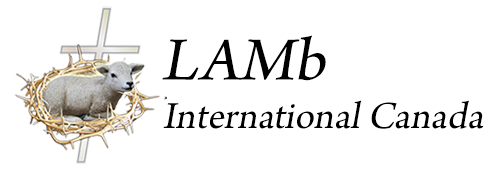ADOPTION ASSESSOR TRAINING
Objectives:
That all adoption workers be highly trained and skilled in order to effectively conduct assessments of prospective adoptive parents. That all workers fully understand the complex dynamics of assessing, selecting, matching and supporting adoptive placements.(Legally mandated training for all adoption assessors in the state of Ohio. Presently being used as a primary tool for adoption assessor preparation in several US states and several Canadian provinces. In addition, LAMb International has implemented the program in Ukraine.)
The Adoption Assessor training is a program which was developed by the Institute for Human Services in Ohio. It is a dynamic training program designed to prepare assessors for their work in choosing and preparing families for adoption. The training program is divided into two tiers and has 9 different modules which specifically relate to the process of adoption. The following are brief descriptions of each of the modules:
Tier 1 – 5 Modules
Services for Birthparents
This one-day module includes information regarding counseling issues and methods in the pre-placement, placement, and post- placement phases of adoption planning with birth parents and their families. The workshop also includes information regarding good-byes and closure to help birth parents experiencing involuntary termination of parental rights cope with their losses. In the case of voluntary adoption, information will be given on how to foster responsible birth parenting in decision-making, birth planning, choosing adoption options, and following through on adoption planning. The workshop will help define the phases of grieving and the importance of grief work and how to best support birth parents and their families cope with their losses. The workshop will acquaint trainees with methods to gather and record social and medical histories of birth parents.
Family and Child Assessment
This two-day module will provide workers strategies to mutually assess families as adoptive resources for children; and introduce the philosophy of joining the Foster Care/ Adoption home study process. The workshop will present information to assist trainees in the identification of families who will have a high probability of long-term success in parenting adopted children.The Family and Child Assessment module will provide workers strategies to assess the social and emotional functioning of children, their developmental needs, and readiness for adoptive placement. Finally, the workshop will present information regarding Selection and Match in Adoption.
Placement Activities
This module will present trainees with placement strategies to maximize success and minimize trauma to the child, foster family, and adoptive family. Trainees will learn pre placement visitation rationale and methodology as well as information that should be shared with families making an adoptive commitment to a child.
Pre-Finalization Services
This workshop prepares staff to assess the adjustment and attachment of the child and family prior to finalization, to recognize stages of adoption disruption, and to implement strategies to avoid disruption. The workshop focuses on specific techniques that strengthen adoptive placements.
Post Finalization Adoption Services
This module provides an overview of the need for post adoption services, the components of such services, information regarding release of identifying and non-identifying information, and strategies for implementation of post adoption services.
Tier 2 – 4 modules
Achieving Permanence through Interagency Collaboration
This workshop is designed to enhance the knowledge and skills of workers in information about interagency and interpersonal collaboration as well as the ingredients and stages of successful collaboration. Finally, assessors will be given strategies to enhance their skills in navigating these stages to ensure permanence for children.
Cultural Issues in Permanency Planning
This workshop will address the importance of cultural continuity in permanency planning, identification and preservation of the child’s cultural identity, as well as strategies to identify, engage and assess prospective adoptive families within their cultural context. Finally, the workshop will develop the worker’s skill in assisting adoptive families to make an accurate assessment of their ability to parent transculturally.
Openness in Adoption
This two-day workshop will examine the continuum of openness and the various styles of adoption occurring along that continuum. The historical perspective of openness will be presented as well as reasons supporting openness within current adoption practice. Trainees will learn about the advantages and liabilities of openness and will learn strategies to maximize the advantages while minimizing the liabilities. Participants will also learn techniques to open adoptions that finalized as closed adoptions. Finally, techniques to manage conflict within open adoption relationships will be presented. Gathering and Documenting Background InformationThis workshop will examine the importance of honesty in disclosure of information to adoptive families as well as the ethical and legal consequences of wrongful adoption (misrepresentation, intentional concealment, or negligent disclosure). Participants will learn what information adoptive families need and creative ways to access that information. Participants will also learn how and when to share information effectively with adoptive parents. Finally, techniques to help adoptive parents communicate information in a helpful way to their children will be shared.
TRAINING ADOPTION ASSESSORS AND ADOPTION WORKERS:
Please contact us on how to bring this training to your system, agency or country
